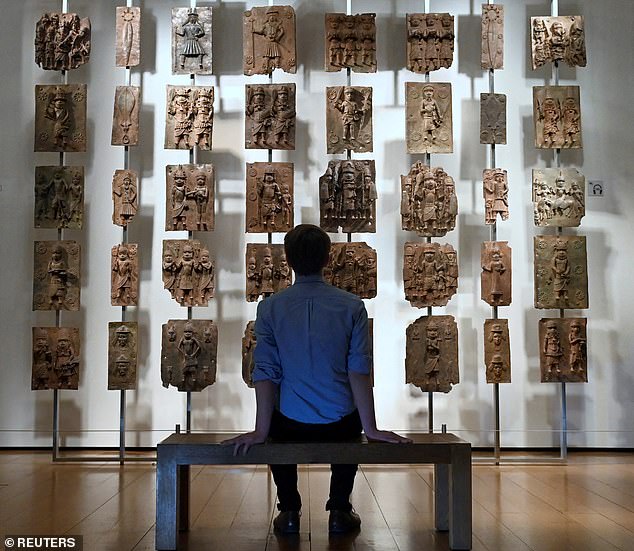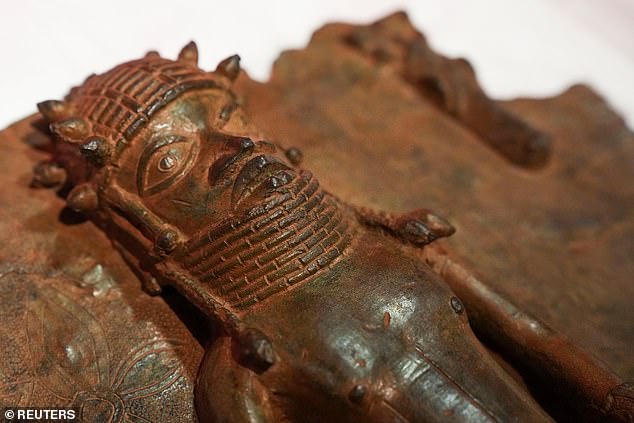The British Museum must not succumb to pressure to return the Benin Bronzes to Africa, as the case for their restitution is ‘weak’, Sir Trevor Phillips has said.
The former head of the Racial Equality Commission said in a report that claims for the artefacts’ return ‘vary greatly in legitimacy’ due to ‘highly disputed’ historical and political arguments, The Telegraph reported.
The sculptures were crafted in Nigeria in the 1500s and stolen by British troops 300 years later.
In 2022, Oxbridge and Cambridge universities approved the return of more than 200 of their Benin Bronzes, part of a collection of some 5,000 plaques and sculptures.
And the museum has since been under pressure to do the same.
Sir Trevor’s co-written report, titled Principles of Restitution, said the people of Benin traded slaves with Portuguese merchants in exchange for the brass used in many of the artefacts.
And the slaves’ descendants, many of whom reside in the UK and US, also have a cultural claim to the sculptures, the report said.
However, it is believed that their return to indigenous peoples might hold more merit.

Former politician Sir Trevor Phillips (pictured) has said the case for the return of the Benin Bronzes to Nigeria is weak

A man views examples of Benin bronzes which, together with collections such as the Elgin Marbles, are the subject of talks of their return to countries of origin

An artefact belonging to the Benin Bronze collection is displayed in London in 2022
‘The case for accepting the claim for restitution of the Benin Bronzes is weak,’ the report found.
‘The risk the bronzes might be damaged or confined to a private collection is too great to justify return.’
The report said a legal loophole might see the Elgin Marbles – a collection of ancient Greek marble structures stolen from Athens by British nobility, now also residing in the British Museum – returned to Greece.
Museums may return artefacts if there appears to be a ‘moral obligation’ to do so.
But when considering such calls for restitution, the report says, the significance of the object to the institution in which it resides must be considered.
Also to be taken into account is the artefact’s public accessibility and location where it provides most educational benefit.
‘Discussions about restitution often imply a moral judgement – the claim an item was unfairly taken and that it has a rightful owner,’ the report reads.
‘Such claims are increasingly political, contested by nations, political parties and campaign groups who have different perspectives on history, its interpretation and how those living today should engage with it.’







